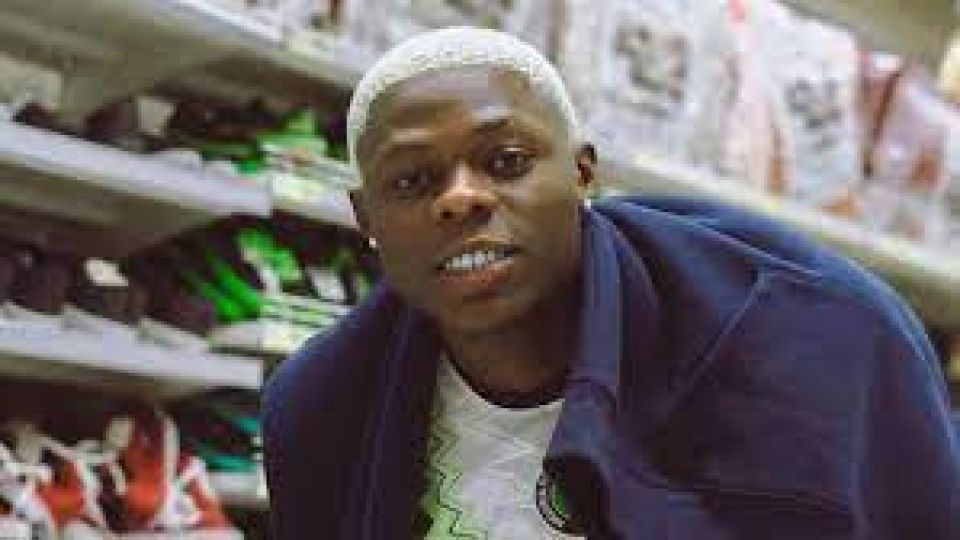from OKORO CHINEDU in Lagos, Nigeria
Nigeria Bureau
LAGOS, (CAJ News) – THE death, under mysterious circumstances, of prominent musician, Mohbad, has added to the hostilities in Nigeria.
This at a time Africa’s largest nation by population battles rising unrest that is a major test to the new government.
The death of the famous musician, born Ilerioluwa Aloba (aged 27), has triggered anger around the country and drawn in politicians, also demanding a probe.
There are a number of versions surrounding the entertainer’s death, confirmed last Tuesday.
One account is that Mohbad, arrested and later cleared of drug possession in 2022, died after being administered an injection by an auxiliary nurse having complained of an ear infection.
It has also been reported Mohbad, a father of one, succumbed to injuries sustained in a fight with a childhood friend, stage name Primeboy, who has denied involvement.
Another version is that he died of depression after a fallout with his former record label.
Even though police services have launched an investigation into the exact circumstances behind the musician’s death, demonstrations have broken out in several areas in southern Nigeria, including the commercial hub of Lagos, his birthplace.
Protesters gathered in the Ogun State capital, Abeokuta, causing traffic gridlock in parts of the city.
A similar gathering erupted in the city of Warri in the oil-rich Delta State.
While there have been no reports of violence during the protests, tempers are boiling over. Indications are that the protests are possible nationwide, through at least late September.
The security think-tank, Crisis24, has altered residents to be on the alert for possible violence as the saga unfolds.
It predicted protesters might march along or block roads. Isolated clashes between police and protesters have not been ruled out.
Governor Babajide Sanwo-Olu of Lagos has appealed for calm.
“I have invited the Department of State Services (DSS) to join the investigation and widen the dragnet with inter-agency collaboration and use of best in class technology to unearth the truth,” he said.
“I have instructed that all those who may have played any role whatsoever in any event leading to the death of MohBad be made to face the law after a thorough investigation,” the governor added.
Sanwo-Olu appealed to friends and fans of the deceased to refrain from making inflammary utterances and reaching prejudicial conclusions on this matter.
The Acting Inspector-General of Police, Kayode Egbetokun, and Lagos State Commissioner of Police, Idowu Owohunwa, have established a special team to investigate the death.
Peter Obi, leader of the Labour Party, appealed for a thorough investigation.
“I urge the government and the security agencies to probe the circumstances that lead to his untimely demise and to leave no stone unturned in unraveling the circumstances surrounding his death,” the opposition leader said.
The ructions over the young musician’s death add to the volatile atmosphere in the West African country.
Meanwhile the Nigeria Labour Congress (NLC) has threatened to embark on an indefinite nationwide strike from Thursday if its demands are not met.
The union initially issued a 21-day ultimatum on August 31 and launched a warning strike on September 5 and 6, along with protests.
NLC is denouncing recent policies implemented by the government, such as the removal of fuel subsidies in the largest producer of crude oil in Africa.
The measure, announced by President Bola Tinubu during his inauguration on May 29, initially caused a substantial fuel price hike that led to an overall increase impacting food and energy prices amid already high inflation.
Residents have been warned of protests, particularly in urban centers such as Abuja and Lagos and along major roads and highways.
Clashes with security forces remain possible if striking participants are overly disruptive and security forces attempt to disperse them.
Nigeria is also a scene of protests by the secessionist Indigenous People of Biafra (IPOB).
The movement has for years fought running battles with police in a campaign to attain independence from Nigeria.
Protests supporting IPOB leader, Nnamdi Kanu, currently detained in Abuja, are frequent in southeastern states, particularly during his court appearances.
Suspected IPOB militants killed at least five police officers during an ambush in Imo State on Monday.
IPOB has been labeled a terrorist organisation since 2017.
The so-called Biafra region geographically includes various southeastern states, including Abia, Akwa Ibom, Anambra, Bayelsa, Cross River, Ebonyi, Enugu, Imo and Rivers.
They are mainly inhabited by the Igbo people, the third largest tribe in Nigeria behind the Hausa and Yoruba.
– CAJ News

